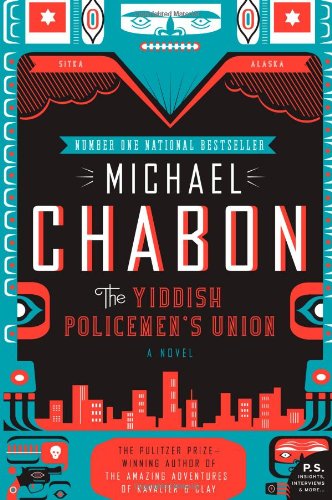It doesn't count, as it's not on the list, but I finished The Yiddish Policemen's Union by Michael Chabon, and felt I owed some kind of follow-up seeing as I bitched about it a couple posts back.
The story did not show substance until the last quarter of the entire novel, wherein suddenly it got incredibly sad and lonely all in the matter of a single scene. I think Chabon's flowery style does injustice to his story as well, as sifting through all of the similes and metaphors and poetic likenings were extremely tiresome and hard to focus on. I doubt that a single sentence in the entire book (not counting dialogue) was exempt from this characteristic, and it's strange to compare that to the actual plot or the personalities of its characters. I imagine Chabon to be a (well-deserved) cocky ego-maniac; something like Oprah - who's entire t.v. studio waiting area where audience members are forced to wait in line for hours before entering the studio for a taping is covered in glamour shots of herself. Though once again, having a conversation with Oprah seems much less insufferable. This image I have worked up is in no way based on reality though, so I may be eating my words in the future if I ever get confronted by an angry (or gracious) Michael Chabon.
I have recently come across so many books that redeem themselves right at the very end, and I'm not sure whether that's genius or cruel. Genius because it is the last thing the reader remembers, or cruel because you made the reader suffer through hundreds of pages of a long irrelevant ramble. The entire "mystery" that the plot revolves around also kind of seemed like a half-hearted ploy to develop character relationships, and that seemed weird to me because of how much extra work that must have taken rather than just to have made a story about a few detectives and their thoughts/pasts. A friend who's literary opinion I hold valuable recently told me that from what he remembers, he rather enjoyed the book (sans the romantic prose of course), so perhaps to each his own.
